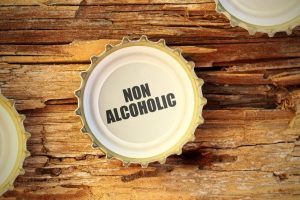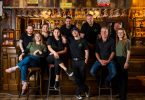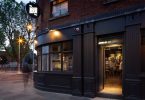8 in 10 believe less stigma associated with NoLos

Heineken’s 0.0 Dry January Bounce Insights Survey, conducted last December in advance of ‘Dry January’, found that 57% had successfully completed Dry January in the past.
But it’s not only the NoLo spirits category that’s enjoying a boom in consumption.
NoLo beers too are benefitting from being free of the ‘stigma’ of choosing a non-alcoholic alternative as attitudes to NoLos show considerable signs of change.
In a recent survey of 300 consumers by Heineken Ireland, 78% answered ‘true’ when asked to answer ‘true’ or ‘false’ to the suggestion that there’s less stigma surrounding not drinking alcohol at social occasions now than previously.
Similarly, when asked whether socialising can be just as enjoyable when opting for alcohol-free alternatives 78% believed that to be true too.
Heineken’s 0.0 Dry January Bounce Insights Survey, conducted last December in advance of ‘Dry January’, found that 57% had successfully completed Dry January in the past.
When asked ‘What are your feelings towards Dry January next month?’ 37% expressed no interest in taking part, nearly 36% were considering taking part and over 27% would be taking part, stating “…. I’m looking forward to the opportunity to set healthy goals for the month of January”.
When asked ‘Why do you think people find Dry January hard?’ nearly 37% responded that it ‘limits social engagements’ while 29% believed there to be a “stigma surrounding not drinking” and nearly 23% believed that Dry January felt too long. Nearly 12% believed that they’d simply get bored with it.
More generally, over 55% viewed alcohol-free alternatives as an option for when they’d prefer not to have a drink. 28% viewed alcohol-free alternatives as “an option solely when you cannot drink for some reason” and 15% viewed them as “a great alternative to drink in between alcoholic drinks for moderation purposes”.
Bearing Heineken’s 0.0% brand in mind, the survey asked, “Do you agree with the following statement: ‘It is easier to go alcohol-free on a night out thanks to the great 0% options on the market’?” to find over 44% in agreement with this statement, 21% agreeing strongly with this, nearly 18% neither agreeing nor disagreeing with it, nearly 15% disagreeing with it and over 2% strongly disagreeing with it.
When asked “Compared to previous years, how do you think your alcohol consumption has changed?” over 27% believed that it had not changed, nearly 26% believed it to have decreased somewhat, 24% that it had increased somewhat, 13% that it had decreased significantly and 10% that it had increased significantly.
The survey was split evenly between males and females and comprised 35% of those in the age group 25-34, 32% in the 35-44 age group, 20.33% of those aged between 18 and 24 and 12.7% those in the 45-54 age group.









